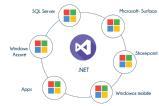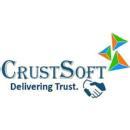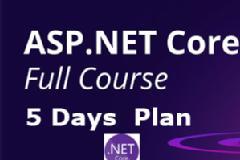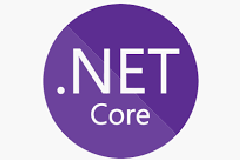Microsoft .NET technology will help you to access to a new generation of advanced software joining the best of computing and communications in a revolutionary new way. The effect will transform the Web and every other aspect of the computing experience. .NET enables developers, businesses, and consumers to harness technology on their terms. .NET will allow the creation of truly distributed Web services that will integrate and collaborate with a range of complementary services to help customers in ways that today’s dotcoms can only dream of. The fundamental idea behind .NET is that the focus is shifting from individual Web sites or devices connected to the Internet to constellations of computers, devices, and services that work together to deliver broader, richer solutions. People will have control over how, when and what information is delivered to them. Computers, devices and services will be able to collaborate with each other to provide rich services, instead of being isolated islands where the user provides the only integration. Companies will be able to offer their products and services in a way that lets customers seamlessly embed them in their own electronic fabric. Course Details: .NET ENTERPRISE ARCHITECTURE 4.5 o Introduction to the .NET platform o Common Language Run Time (CLR) o The Common Type Specification (CTS) o The Common Language Specifications (CLS) - Microsoft Intermediate Language (MSIL) C#.NET Language Basics - Data Types -Type Conversion o Boxing & Unboxing o Conditional Statements o Looping o Methods in C# o Properties o Arrays o Indexers o Structures, Enumerations o Strings o Collections Objects Oriented Programming Oops Concepts Encapsulation Inheritance Polymorphism Class and Object Constructors Dynamic types Optional parameters Names & optional arguments Covariant generic type parameters Destructors Method overloading Method overriding Early binding, Late Binding Abstract Classes Abstract Methods Interfaces Multiple Inheritance Generic classes Static classes Static constructors Object initializer Collection Initializer Extension Methods Partial Classes & Methods Memory Management Garbage Collector Stack.and Heap System. GC Class System. Object Class Architecture of Gc Exception Handling System Defined Exceptions Custom Exceptions Try, Catch, Finally Throwing exceptions Data Base Programming (ADO.NET) ADO .NET Introduction Data Providers in .Net Introduction to Managed and Unmanaged Providers Data Readers- Dataset and Data Adapters Datagrid View with DML operations sorting and paging etc. Creating Relations and Transactions Linq programming Stored procedures ASSEMBLIES Private Assemblies Shared Assemblies Global Assembly Cache (GAG) Delegates Function Pointers Multi cast delegates File Handling System .IO namespace File stream Stream Reader Stream writer Fileinfo Directory info Multi threading Threading Thread synchronization Critical sections Thread life cycle Advanced .net .NET Core Framework overview TPL (Task Parallel programming) ASP.NET Web API Overview








